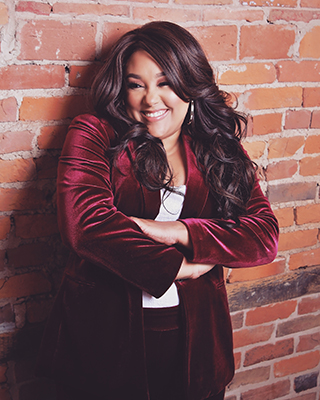Many factors promote or inhibit child sexual abuse (CSA) within Black and brown communities. Breaking the stigma around child sexual abuse and developing a culture of abuse safety has proven to be challenging. In communities of color, avoidance or ‘sweeping it under the rug’ is how historical and cultural traumas negatively affect survivors’ children from generation to generation. Avoidance perpetuates the cycles of abuse within families, teaching them how to transfer trauma from one generation to the next successfully. The idiom came into use in the early 1900s, but the learned behavior existed long before. Stephanie Swann, Ph.D., LCSW, a private practitioner who owns and operates the Atlanta Mindfulness Institute, says, “The people at the highest risk of trauma and those with the most difficulty working through it have experienced their own trauma but also have come from a family where there was a trauma in their parents and often in their parents’ parents.”
We know this to be true in families of color. Sexual violence and rape were used as a tool to force enslaved Black people into submission. Historically, society has shed a bright light on the sexual violence experiences that many enslaved women endured and have overlooked the experiences of men forced into coerced reproduction. Coerced reproduction, a form of sexual violence, forced enslaved men and women to bear children to increase the profits of slaveholders. In the book Rethinking Refus: Sexual Violations of Enslaved Men, Professor Thomas Foster reveals that sexual assault of enslaved men occurred systematically and in various forms, including physical assault, sexual coercion, and other intimate violations. Enslaved communities coped with sexual violence, and even when they wanted to and did fight against it, they understood the risk. The consequence of being beaten/whipped, killed or sold, and separated from their family was a burden they carried. They endured the harshest forms of sexual violence in hopes of surviving the moment. They taught their enslaved children how to endure and bear the same burden in silence. Generations later, the residual effects of trauma are evident in families as they continue to struggle with confronting the issue of sexual abuse. Stephanie Swann, Ph.D., LCSW notes:
“the longer disclosures are delayed, the longer individuals potentially live with serious negative effects and mental health problems such as depression, anxiety, trauma disorders, and addictions, without receiving necessary treatment”.
Most of our great-grandparents and grandparents would never talk about sexual abuse. Not because they never experienced it but because they never felt empowered or didn’t feel the need to address it. Many Black and brown families have adopted the idea that time devoted toward unpacking trauma is time wasted. Grandma didn’t have time to discuss her trauma because she was focused on providing for her family. Older generations lived with trauma disorders, addictions, and other mental health problems for years, and many died with them.
Emotional invalidation is another factor that contributes to the cycles of abuse. Many of us grew up in households where the adults in our family communicated that our emotions were invalid, unreasonable, irrational, or should be concealed. ‘Man up’ rang throughout our homes. This statement communicated to the child that his emotions were invalid and that he was weak for having them. It taught our boys to keep their emotions and feelings bottled up. It was harmful, and our men still deal with its effects as many of them struggle to divorce the idea that their manliness or manhood is somehow connected to their ability to conceal their emotions.
After experiencing physical discipline, many of us heard, “be quiet before I give you something to cry about,” which taught us that the pain we felt wasn’t real. It invalidated our feelings as children and as adults; some of us still find it challenging to communicate to our parents that their actions and words hurt us. Because we were taught not to question our elders, we practiced doing what we’re told without fully understanding why.
You Have Permission to Do Things Differently
Unfortunately, doing something different isn’t always easy, and it comes with certain risks. Some of your family won’t support your decision. As someone disrupting cycles of generational trauma, I’ve also become the “black sheep” of the family. I may be the “black sheep,” but future generations will live in the opportunities that exist because I am. I choose to go against the toxic and unhealthy norms within my family and create a better future for those who will come after me. Seriously, at what point do we speak up and fight against the unhealthy and toxic norms within our families to create a healthier and safer future for ourselves and our children? The truth is you can be grateful for the opportunities that exist because of your ancestors without adopting their toxic and unhealthy behaviors and practices.
In an inspiring TedX presentation, Tabitha Mpamira-Kaguri, founder and Executive Director of Edja Foundation, believes that trauma not transformed is trauma transferred.
“We all carry batons that we didn’t ask for [from previous generations] but we have not stopped to wonder what are we carrying. What kind of baton have you received and what will you pass on?”
If we’re honest, there are many traditions, habits, belief systems, and behaviors intertwined within the thread of our lives as if they are hereditary. From the way we prepare certain meals to the way we celebrate certain holidays, we tend to do it like those who came before us. What happens when those same traditions, habits, belief systems, and behaviors are harmful? What happens when the harm occurs at the hands of a relative or someone close to the family? We don’t want to talk about the perpetrator who attends the family reunions and gatherings, but we have to.
Here are the cold hard facts: According to Darkness to Light, about 1 in 10 children are sexually abused before their 18th birthday. Approximately 30% of children who are sexually abused are abused by family members, 60% by people the family trusts, and 10% by strangers. Statistically speaking, “Stranger Danger” isn’t the issue. It’s essential to know the truth so that we can stop passing along false and harmful information. Correcting negative language by providing accurate information can cause stigma reduction.
Confronting the Issue
Providing safer environments can help reduce the risk for abuse. More than 80% of sexual abuse cases occur in isolated, one-on-one situations. If you eliminate or reduce isolated, one-on-one situations between children and adults, as well as children and other youth, you’ll dramatically reduce the risk of sexual abuse. While I recognize that creating safe environments can reduce the risk, I can’t ignore the fact that all families do not have the same resources or support. Many families rely on neighbors, babysitters, family members, and friends to help care for their children. We cannot empower parents and caregivers to do more without addressing disparities and systematic challenges that prevent vulnerable communities from accessing resources and receiving quality care. It’s easy to make judgments about parents’ or caregivers’ ability to protect their children, but the judgment usually comes from not knowing what choices they had to begin with. Everyone isn’t afforded the same options, and what may look like imperfect parenting to you may be the absolute best parenting someone else can do, considering their circumstances. Compassion must be a part of the conversation.
More Than a Survivor
As a survivor of childhood trauma, a woman of color, and a leader in the nonprofit sector, I sit in a unique space that assigns me great responsibility but also affords great opportunity. I use my voice and experience to inspire the world to reimagine how we protect all children, who are all deserving of respect, dignity, and the opportunity to grow up with their sexual boundaries intact. Protecting our children should be a priority, and we cannot afford to avoid the conversation. As we continue to advocate for the protection of children, there are many conversations that we must engage in. The conversation won’t be comfortable, but it will be worth it to the child who will never have to tell the same survivor story that I did.
This feature was submitted by Ashley Nicole Cook.

Ashley Nicole Cook is the founder of Faith to Confront-a consulting agency that help pastors and ministry leaders prevent child sexual abuse and care well for survivors who have experienced it. As an experienced motivational speaker, Ashley frequently shares her experience as a survivor of child sexual abuse. As a volunteer she serves on the Board of Directors for the Ohio Alliance to End Sexual Violence. Using her story of resilience, she mentors students who have experienced childhood trauma. The darkest moments of Ashley’s life became the launching pad for her mission to end child sexual abuse and her commitment to help amplify voices of survivors. Get connected by following @helloashleycook on social media platforms.







Add Comment
You must be logged in to post a comment.